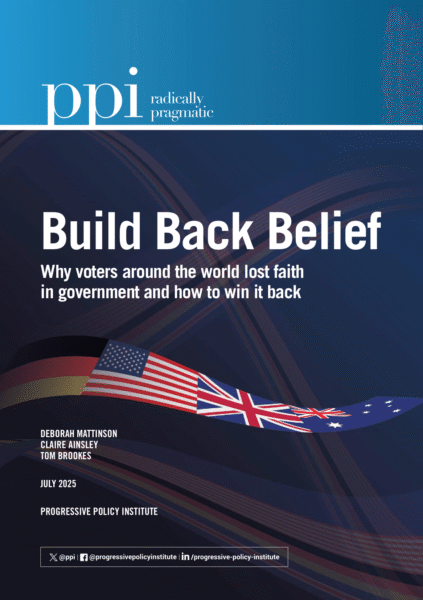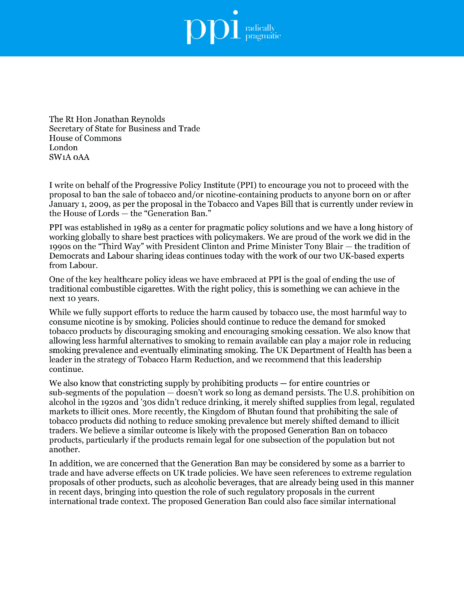FACT: Tariffs are taxes paid by Americans.
THE NUMBERS: U.S. GDP growth –
| 2025* |
1.8%? |
| 2024** |
2.8% |
| 2023 |
2.9% |
| 2022 |
2.8% |
| 2021 |
6.1% |
| Average 2010-2024 |
2.4% |
|
* International Monetary Fund projection, April 2025
** 2021-2024 growth rates from BEA
WHAT THEY MEAN:
Mr. Trump’s April 2 tariff decree, claiming a “national emergency” related to trade balances, imposed (a) a 10% tariff on almost all the coffee, TV sets, automobile parts, shirts, and other things American buy from abroad, and (b) higher rates up to 50% on things from 57 specific trading partners, from Bosnia and Jordan to the European Union. Following a bond-market rout on April 9, the administration “suspended” these latter rates for 90 days — i.e., today — in the hopes of making “deals”. Monday’s extension of this deadline to August 1st for at least some countries comes with renewed threats, similar though not always identical to those of April 2. (They range from 25% to 40% this time, and cover 14 countries: Kazakhstan, Cambodia, Tunisia, South Africa, Japan, Korea, Indonesia, Bangladesh, Thailand, Serbia, Bosnia, etc.). These may all be struck down in a few weeks, as on July 31 the Court of Appeals will hear arguments on the May 28 lower-court opinion declaring the entire April 2 decree, and therefore anything using it as a base, illegal. If that doesn’t happen, here’s a look at the likely impacts, through the lens of a “deal” the administration announced (perhaps prematurely) last Thursday:
Big picture first: Last April, the International Monetary Fund cut its U.S. growth estimate by nearly a point, from a 2.7% guess in mid-January to 1.8%. (In dollars, this means about $200 billion less U.S. output, with an original $730 billion in growth falling to $535 billion.) Excluding the -2.2% contraction in the pandemic year 2020 as an anomaly, a 1.8% growth year would be the U.S.’s lowest in 15 years. Or, more recently, it’s a point below the 2022-2024 average. The Commerce Department’s Bureau of Economic Analysis, which does the U.S. government’s GDP-estimating, reports a -0.5% contraction in this year’s first quarter, so the IMF seems on track or even a bit optimistic.
Trade “deals” and anti-growth: The administration’s description, posted last Thursday, of a ‘trade deal’ with Vietnam — as of this morning, the only one reported so far among countries targeted in the April 2 decree — helps explain the impact of trade policy on these forecasts:
“Vietnam will pay the United States a 20% tariff on any and all goods sent into our territory, and a 40% tariff on any transshipping. In return, Vietnam will do something that they have never done before, give the United States of America total access to their markets for trade. In other words, they will ‘open their markets to the United States,’ meaning that, we will be able to sell our product into Vietnam at zero tariff.”
The first two sentences aren’t true. “Vietnam” won’t pay anything, and its government made much larger “access” offers to join the Trans-Pacific Partnership in the 2010s. This “deal’s” nature and lifespan (even if the Court of Appeals doesn’t scrap it next month) are likewise uncertain, as neither the White House nor the U.S. Trade Representative Office has posted any actual text. But assuming that at least the “20%” (cut back from a 48% April 2 rate) and “40%” figures are correct, and that it isn’t swiftly terminated, here’s the likely impact of “deals” of this sort.
1. Vietnam won’t pay any of this. Americans buy about $130 billion worth of goods from Vietnam each year, mainly consumer goods found in retail stores and groceries: TV sets, laptops, and smartphones; shoes and clothes; furniture; seafood, coffee, canned tropical vegetables, and so on. Imposing a 20% tariff on them does not mean that “Vietnam” as a country, or the Vietnamese government, or Vietnam-based companies, will pay anything. The ones who pay are the buyers — American retailers, food wholesalers, grocery stores, and so on — who will write checks to CBP for 20% of their cargoes’ value when furniture and clothes dock at Long Beach, or laptops and coffee arrive on the incoming tide at New Orleans.
2. You will pay. The buyers’ tariff payment, in turn, is included in the bill you pay in the store. This is because these buyers add it to the bills they’ve paid to their Vietnamese supplier and to the shipping company carrying across the Pacific to the United States. The result is the “landed cost” from which they mark up to cover costs — wages, building rent, transport, maintenance, marketing, etc. — and leave a profit margin. If the product doesn’t sell, the store takes the loss; if you buy it, you cover their tariff cost. Using the hypothetical example of a container carrying 1,000 Vietnamese-made wooden chairs valued at $100 each, here’s the arithmetic:
| Costs for shipment |
Under MFN tariff rate |
Under Trump “deal” |
| Payment to vendor: |
$100,000 |
$100,000 |
| Tariff rate |
0% |
20% |
| Tariff payment: |
$0 |
$20,000 |
| Payment to shipping company |
$5,000 |
$5,000 |
| = Total landed cost |
$105,000 |
$125,000 |
| * * * |
* * * |
* * * |
| Cost per chair |
|
|
| Import value of chair |
$100 |
$100 |
| Tariff payment per chair |
$0 |
$20 |
| Landed cost per chair |
$105 |
$125 |
| Markup |
x 2 |
x 2 |
| Store sale price |
$210 |
$250 |
| Your bill |
|
|
| Add 5% state sales tax |
+5% |
+5% |
| Payment |
$220.50 |
$262.50 |
Notes: The average import value of a wooden Vietnamese chair last year was $106; the table uses $100 for simplicity. The $5000 payment to the shipper is based on typical current container rates for a Ho Chi Minh City-to-Los Angeles transit. The markup is purely hypothetical; real-world markups vary by company and product. State sales taxes range from 0% to 7.25%, the 5% is a rough average.
So the administration’s “deal” here is for you to pay $42 more for a chair. Fundamentally, you’re out $42, the federal government gets $20 in tariff money, and your state government gets $2 in sales tax. The remaining $20 mostly evaporates as “deadweight loss.” Looking back to the IMF’s forecasts, and scaling this up for U.S. trade in general:
Family price impacts: Spread across the country and all consumer goods, retailers will lose some business as they try to sell higher-priced chairs; buyers such as yourself will pay more; and the country will lose some GDP as more twenties vanish around the country.
Producer impacts: Where most Vietnamese imports are “consumer” goods like the chairs, shoes, and TV sets, Canada’s product mix is heavy on energy, fertilizer, and natural resources. The EU’s tilts toward medicines, cars, chemicals, and industrial inputs. Retailers, groceries, and restaurants do buy a lot of Canadian and European goods, and with higher tariffs, they’d pay more and charge more. But the impact of tariffs on Canadian and European goods — that’s fully a third of all U.S. goods imports last year — will fall relatively harder on American manufacturers, farmers, hospitals, and building contractors. Facing higher costs, these businesses would lose some competitiveness vis-à-vis imports and especially as exporters. Their higher production costs, meanwhile, would raise inflationary pressure on the “producer price” side and give Federal Reserve economists some extra reason to avoid interest rate cuts.
So: as the IMF’s forecasts and the BEA’s reporting to date both suggest, the likely effect of “deals” like this one will be somewhat lower living standards and a drop in growth rates.
FURTHER READING
PPI’s four principles for response to tariffs and economic isolationism:
- Defend the Constitution and oppose rule by decree;
- Connect tariff policy to growth, work, prices and family budgets, and living standards;
- Stand by America’s neighbors and allies;
- Offer a positive alternative.
PPI’s Ed Gresser testifies on tariffs at the Joint Economic Committee, December 2024; PDF version here.
Macro background:
The IMF’s April World Economic Outlook update.
The Bureau of Economic Analysis’ most recent GDP report shows a drop of 0.5% in January-March 2025.
Legal outlook:
The White House’s April 2 tariff decree.
The Court of International Trade’s unanimous May 28 opinion ruling it unconstitutional.
… our look at the C.I.T. decision.
Next up, with oral argument coming July 31, the Court of Appeals brief from the Liberty Justice Center.
ABOUT ED
Ed Gresser is Vice President and Director for Trade and Global Markets at PPI.
Ed returns to PPI after working for the think tank from 2001-2011. He most recently served as the Assistant U.S. Trade Representative for Trade Policy and Economics at the Office of the United States Trade Representative (USTR). In this position, he led USTR’s economic research unit from 2015-2021, and chaired the 21-agency Trade Policy Staff Committee.
Ed began his career on Capitol Hill before serving USTR as Policy Advisor to USTR Charlene Barshefsky from 1998 to 2001. He then led PPI’s Trade and Global Markets Project from 2001 to 2011. After PPI, he co-founded and directed the independent think tank ProgressiveEconomy until rejoining USTR in 2015. In 2013, the Washington International Trade Association presented him with its Lighthouse Award, awarded annually to an individual or group for significant contributions to trade policy.
Ed is the author of Freedom from Want: American Liberalism and the Global Economy (2007). He has published in a variety of journals and newspapers, and his research has been cited by leading academics and international organizations including the WTO, World Bank, and International Monetary Fund. He is a graduate of Stanford University and holds a Master’s Degree in International Affairs from Columbia Universities and a certificate from the Averell Harriman Institute for Advanced Study of the Soviet Union.








